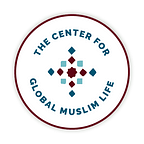Advice for American Muslims & All Those Facing Hardship from Habib Kazim al Saqqaf
Earlier this year we were blessed to spend time with a great exemplar of the Prophetic tradition, Habib Kazim al Saqqaf from Tarim, Yemen. In one of his classes he was asked how do we as an Ummah (community) respond to the many layers of crisis we face.
The root of this crisis according to Habib Kazim has three parts:
- We no longer respect differences within our tradition.
- We don’t follow the sciences of Ihsan (Islamic spirituality / perfecting of our spiritual practices).
- We have moved away from following the true examples of the Prophet (Peace Upon Him).
To return to a higher state as a community he recommended that:
- We study the Serrah (the Prophetic biography) and apply it in our lives.
- With that we also study the Shama’il (the Prophetic characteristics).
- We read and recite the Qasaa’id (the spiritual poetry that describes the Prophet Muhammad.
When I asked him specifically about the American Muslim community, the thing he recommended most explicitly, was that we must have an awrad / daily set of dhikr (litany) that we say for protection. As he said related to this, “The most important thing amongst the Muslims is that they should recite a wird or dhikrs that protect them. These are like your shield, and if anything were to happen to you it would be gentle and small.” A common example of a wird is the Wird al-Latif of Imam al-Haddad.
Specifically he recommended that people facing oppression and difficulties around the world should recite the following verse from the Qur’an after every prayer:
حَسْبِيَ اللَّهُ لَا إِلَٰهَ إِلَّا هُوَ ۖ عَلَيْهِ تَوَكَّلْتُ ۖ وَهُوَ رَبُّ الْعَرْشِ الْعَظِيمِ
“God suffices me. There is no god but He. In Him do I trust, and He is the Lord of the mighty Throne.” (The Study Qur’an 9:129)
We must remember that our response to what we face in 2017 must be the best response and as the Qur’an tells us, a correct and upright response will bring help from the angels and our Lord. We must believe these things are real and develop the spiritual training to face what is in front of us. We also must believe in miracles in this work and the possibility of the transformation of people who we today see as enemies.
The Qur’an is most clear on all of these points in these verses that Muhammad Ali himself chose to have recited at his funeral:
“Truly those who say, ‘Our Lord is God’ and are upright, the Angels will descend upon them saying, ‘Have neither fear nor sadness, but rather rejoice in this Paradise that you had been promised. We are your allies in this lower life and in the Hereafter, where you will have your hearts’ desire, and you will have all you request, hospitably from One, Most Forgiving, Most Merciful.’ Who is more beautiful in speech than the one who invites to God and does righteous works, saying, ‘Truly I am a Muslim, submitted to God’? For good and evil are not equal: repel ugliness with what is more beautiful, and behold, the one between you and whom there was enmity is suddenly transformed into a warm friend. But no one arrives at this station except those of patience, and no one achieves it without great luck” (Qur’an — 41: 30–35) — Translation, Shaykh Hamza Yusuf
